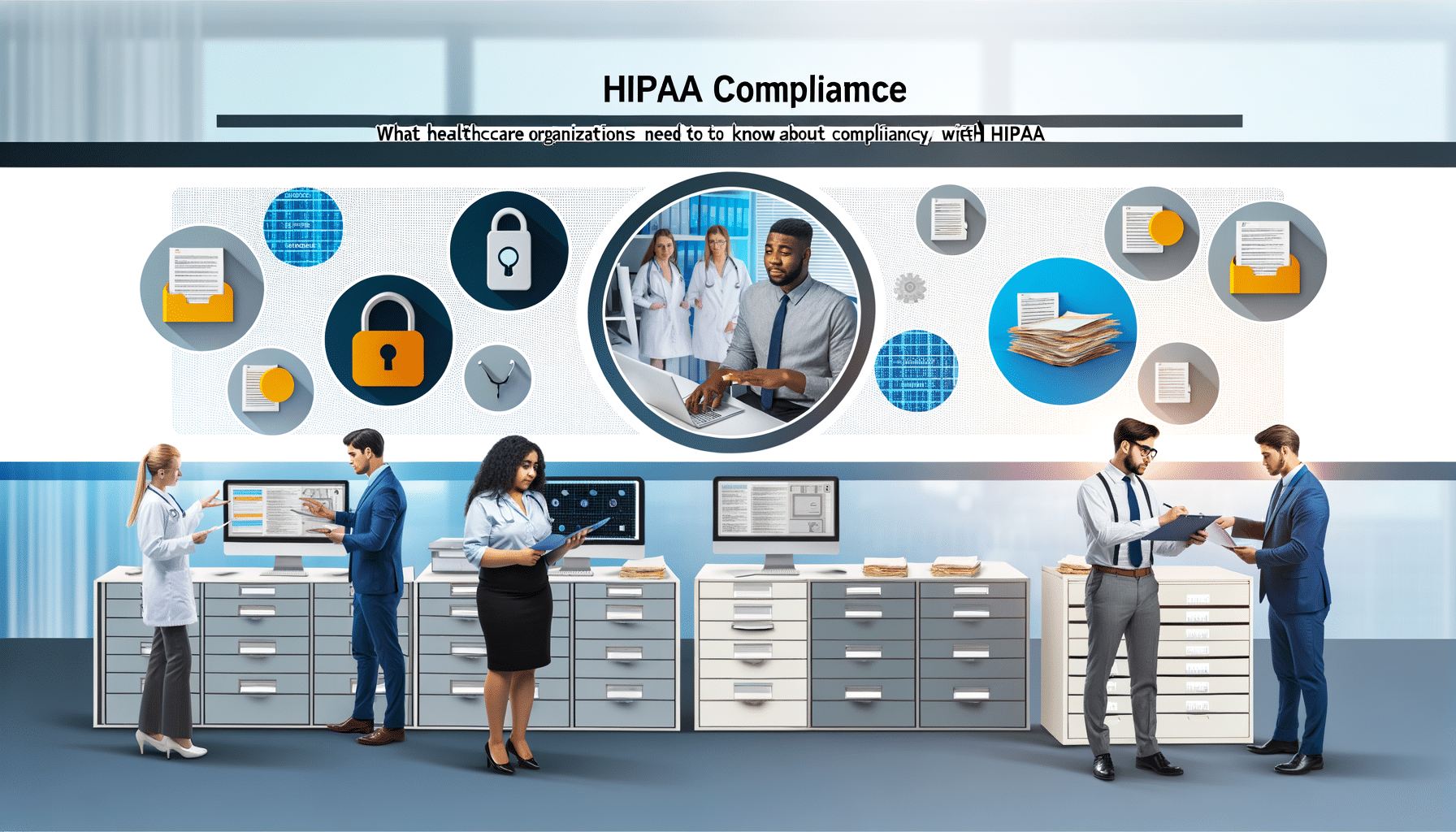- Compliance Essentials
- December 4, 2023
Automating Compliance Monitoring in Healthcare with AI

Revolutionizing Compliance Monitoring in Healthcare with AI
The healthcare industry, renowned for its critical role in societal well-being, finds itself at the crossfire of tightening regulations and the need for impeccable record management. Compliance monitoring, which ensures adherence to healthcare standards like HIPAA, has traditionally been labor-intensive and prone to human error. As someone deeply entrenched in tech innovation, I realize the drastic transformation potential that AI can bring to healthcare compliance. Let me walk you through how AI is not just simplifying, but supercharging compliance monitoring in healthcare.
The Growing Complexity of Compliance
Healthcare compliance is no walk in the park. The intricate system involves maintaining patient confidentiality, accurate billing, and adhering to numerous protocols. With regulations constantly evolving, keeping pace has been challenging. Even minor oversights can lead to hefty fines or reputational damage. This is where AI-driven compliance monitoring steps in, converting a cumbersome task into a streamlined process.
How AI Transforms Compliance Monitoring
Integrating AI into compliance monitoring is akin to having a vigilant digital auditor. Here’s how it transforms the landscape:
Key Benefits of AI-Driven Compliance Monitoring
1. Cost Efficiency
AI systems reduce the need for manual checks, freeing up resources. This not only lowers operational costs but also lifts the financial burden of potential non-compliance penalties.
2. Enhanced Security
In healthcare, patient data security is paramount. AI-powered systems ensure stringent data protection, conforming to standards like GDPR and HIPAA with ease. They provide peace of mind, knowing that patient information is in safe hands.
3. Scalability
As healthcare facilities grow, so do their compliance needs. AI systems adeptly scale, accommodating the increasing data influx and regulatory demands without missing a beat.
Real World Applications
Consider a large hospital network using AI for compliance monitoring. These systems continuously audit electronic health records, billing processes, and regulatory reports. The AI highlights patterns suggesting a potential compliance issue, allowing preemptive corrections. This proactive approach boosts the hospital’s reputation as a compliant organization, attracting more patients and partners.
Challenges and Considerations
While AI is a game-changer, its integration comes with challenges. Healthcare facilities must:
Conclusion: Embrace AI for a Compliance Leap
The time has come to embrace AI in compliance monitoring. The healthcare industry cannot afford to remain stagnant amidst transforming digital landscapes. Implementing AI in compliance monitoring not only simplifies processes but also enhances accuracy and reliability. As a founder committed to leveraging technology for operational efficiency, I encourage healthcare leaders to adopt AI tools. They don’t just propel compliance efforts but set the foundation for a future where technology and healthcare work hand in hand.
For further insights on transforming compliance, connect with me, Toshendra Sharma, on my entrepreneurial journey as we witness the dawn of an AI-driven era for compliance monitoring.
Toshendra Sharma is the visionary founder and CEO of RecordsKeeper.AI, spearheading the fusion of AI and blockchain to redefine enterprise record management. With a groundbreaking approach to solving complex business challenges, Toshendra combines deep expertise in blockchain and artificial intelligence with an acute understanding of enterprise compliance and security needs.
Related Posts

How to Audit Healthcare Records for Compliance and Accuracy
Best practices for auditing healthcare records to ensure compliance and accuracy.
- November 5, 2023

HIPAA Compliance: What Healthcare Organizations Need to Know About Record-Keeping
Understand the essentials of HIPAA-compliant record-keeping.
- October 17, 2023
Archives
- December 2024
- November 2024
- October 2024
- September 2024
- August 2024
- July 2024
- June 2024
- May 2024
- April 2024
- March 2024
- February 2024
- January 2024
- December 2023
- November 2023
- October 2023
- September 2023
- August 2023
- July 2023
- June 2023
- May 2023
- April 2023
- March 2023
- February 2023
- January 2023
- December 2022
- November 2022
- October 2022
- September 2022
- March 2019
Want to get more content like this?
Signup to directly get this type of content to your inbox!!
Latest Post
Organizing External Auditor Access
- December 22, 2024
Document Control in Manufacturing Plants
- December 21, 2024
Handling Rush Financial Report Requests
- December 20, 2024
Managing Record Access After Staff Changes
- December 19, 2024





